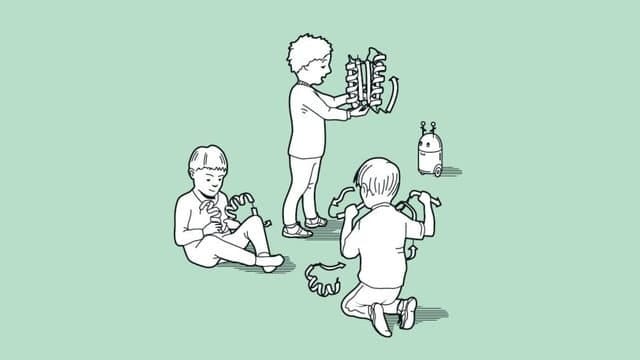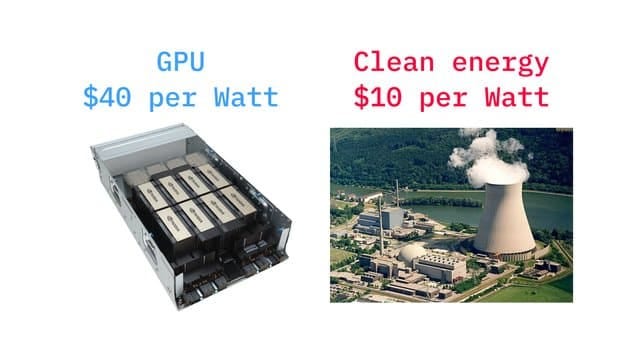Five Things AI: Dystopia or Utopia, Nobel Prize, Agents, Scaling, Clean Energy
Again a boring week in AI. Nothing to see here.
Here we go again! Thanks for tuning in for another episode of Five Things AI - your one-stop shop for five interesting must-reads from the wonderful world of AI. AI is not slowing down anytime soon and every week there is a ton of stuff to read that is fascinating. And then there is lots of stuff that will be all over the news like the latest robotaxithingy staging yesterday, which will be discussed for the weekend and then forgotten until the product finally ships. I think it is much more important to think about and discuss the future of AI and how we can shape it, instead of focusing on more cars on our streets. Also this week, AI was awarded its first Nobel Prize, well almost. But still remarkable.
Here’s an AI event I highly recommend for you to attend! It’s in Hamburg on December 5, 2024.
Get your tickets now:
AI.SUMMIT 2024 - Corporate Edition: The time to adopt AI is now!
I’ll see you there!
Please remember to go paid if you can afford less then the prize of a venti latte for this publication per month. Thank you!
Read on, my dear, there’s a lot to unpack in this week’s Five Things AI!
AI: Dystopia or Utopia?
“Part of my motivation to pen this piece is to dispel the dystopian vision of an AI-first world. First and foremost, it is a cognitively lazy vision – easy to fall into and lacking all imagination: large-scale job losses, the rich getting richer, the devaluation of intellectual expertise as well as physical work, and the loss of human creativity all in service of our AI overlords. On the contrary, AI can provide near free AI tutors to every child on the planet and near free AI physician expertise to everyone on the planet. Virtually every kind of expertise will be near free from oncologists to structural engineers, software engineers to product designers and chip designers and scientists all fall into this camp. It will also help control plasma in fusion reactors and self flying aircraft, self-driving cars and public transit making all substantially more affordable and accessible by all. AI promises to democratize even how we build enterprises. But more than anything it will be an equalizing force as all humans will be able to harness the same expertise.” - Vinod Khosla is a smart man and he has shown before that he can make some safe bets on future developments in tech. I hope he’s right again.
The Nobel Prize in Chemistry 2024
I remember when ChatGPT-3 was released and so many pundits declared that Google was essentially over and that they lost the AI race. Now Demis Hassabis and John M. Jumper got the Nobel Prize in Chemistry for using AI to predict the structure of almost all known proteins. Something that was deemed an impossible task just a few years ago. This is so amazing and the implications for many, many people suffering from illnesses will be huge as new medication can now be developed faster than ever.
Agents are the future AI companies promise — and desperately need
“Artificial intelligence companies hope that agents will provide a way to monetize powerful, expensive AI models. Venture capital is pouring into AI agent startups that promise to revolutionize how we interact with technology. Businesses envision a leap in efficiency, with agents handling everything from customer service to data analysis. For individuals, AI companies are pitching a new era of productivity where routine tasks are automated, freeing up time for creative and strategic work. The endgame for true believers is to create AI that is a true partner, not just a tool.” - indeed, AI Agents will redefine how we think about and use technology. It’s a big leap into the future.
OpenAI Must Scale a Massive Money Mountain
“We already knew the big goal of reaching $100B in revenue by 2029 (and my walk up to that number – with the help of ChatGPT, naturally – ended up being pretty close). But ChatGPT itself would go from a projected $3B business this year to a nearly $40B business in 2028. That would make it roughly the same size as the Mac business is today for Apple. Bigger than all of Qualcomm, Starbucks, and Uber. In 2029, they're projecting $55B. That would put ChatGPT ahead of where Oracle, Nike, and Intel are today. Just ChatGPT.” - ok, this is pretty wild. And it is just the beginning, at least this is how it is planned.
AI will use a lot of energy. That's good for the climate.
“One way or another, hundreds of millions of GPUs will crackle with the world’s data. Vast pools of capital will be brought to bear on the creation of thinking machines, and the opportunity for the energy industry is immense.
Done correctly, AI data centres will accelerate the economic and technological frontiers of clean-firm power. They have already started.” - the sudden need for lots of energy quickly while sticking to the goal of carbon neutrality by 2030 means that Big Tech will need to get very creative and advance technological breakthroughs quicker.
If you missed last week’s edition of Five Things AI, you can read it here:
That’s it for Five Things AI this week! 🤖
— Nico







